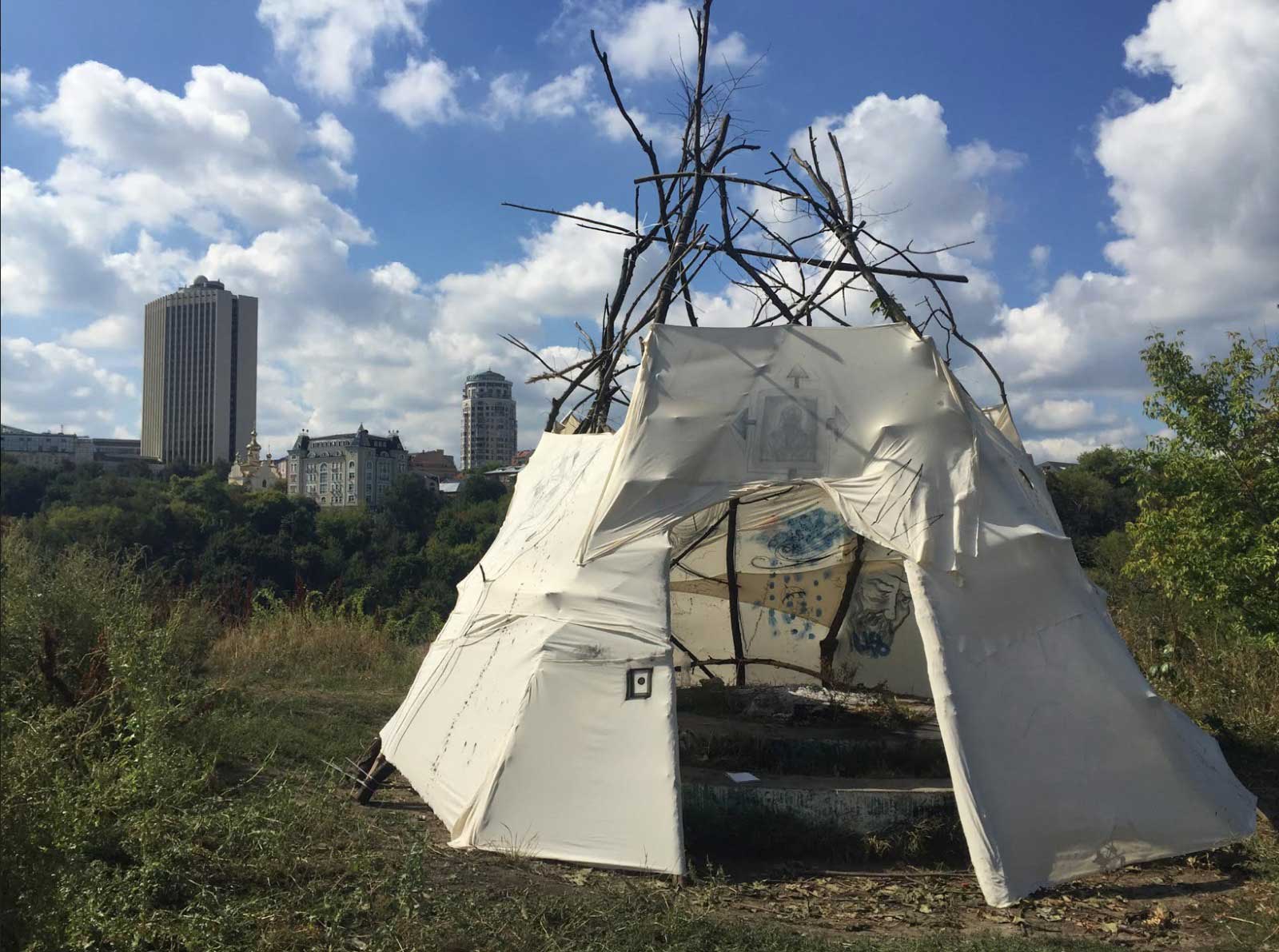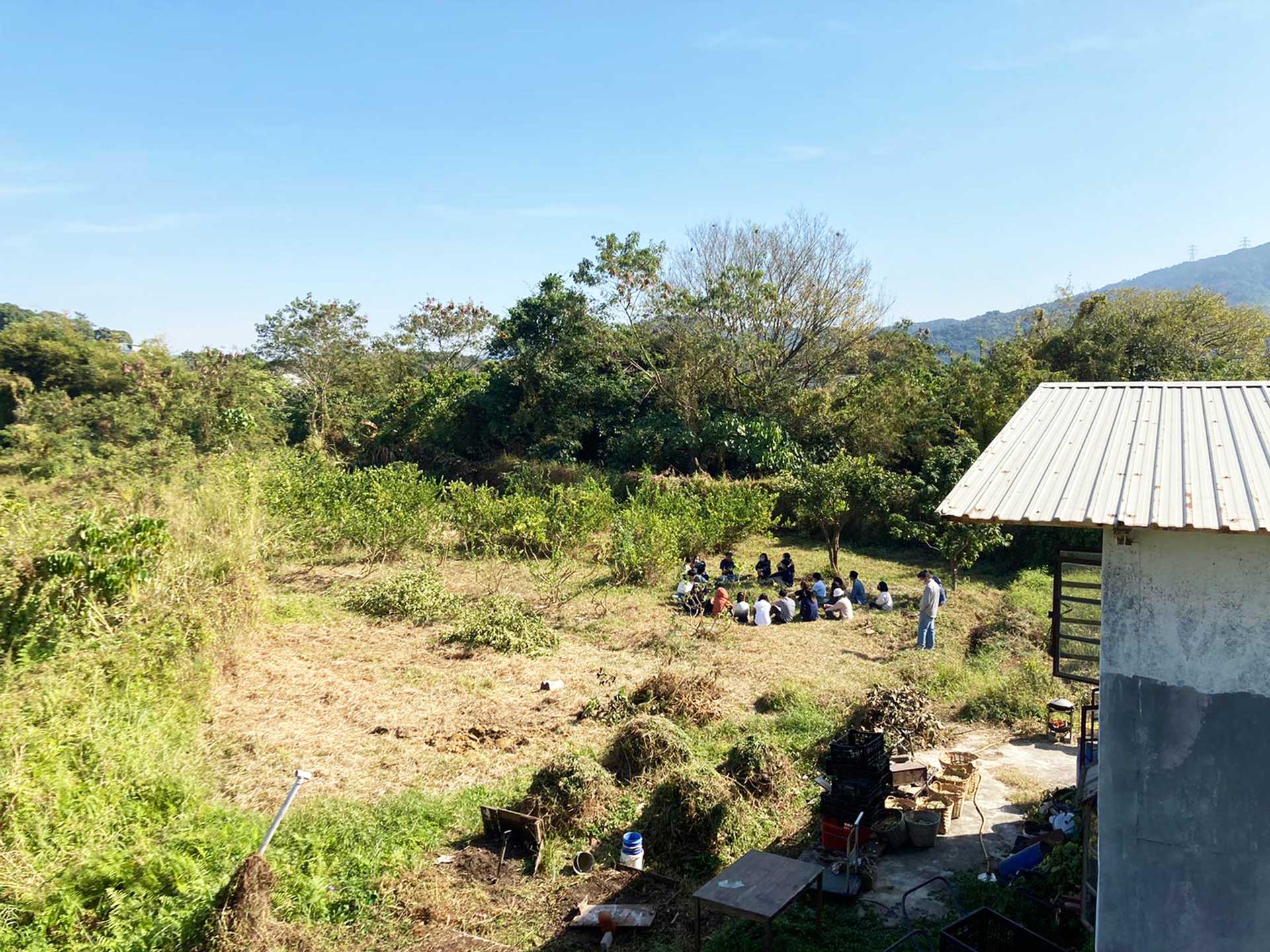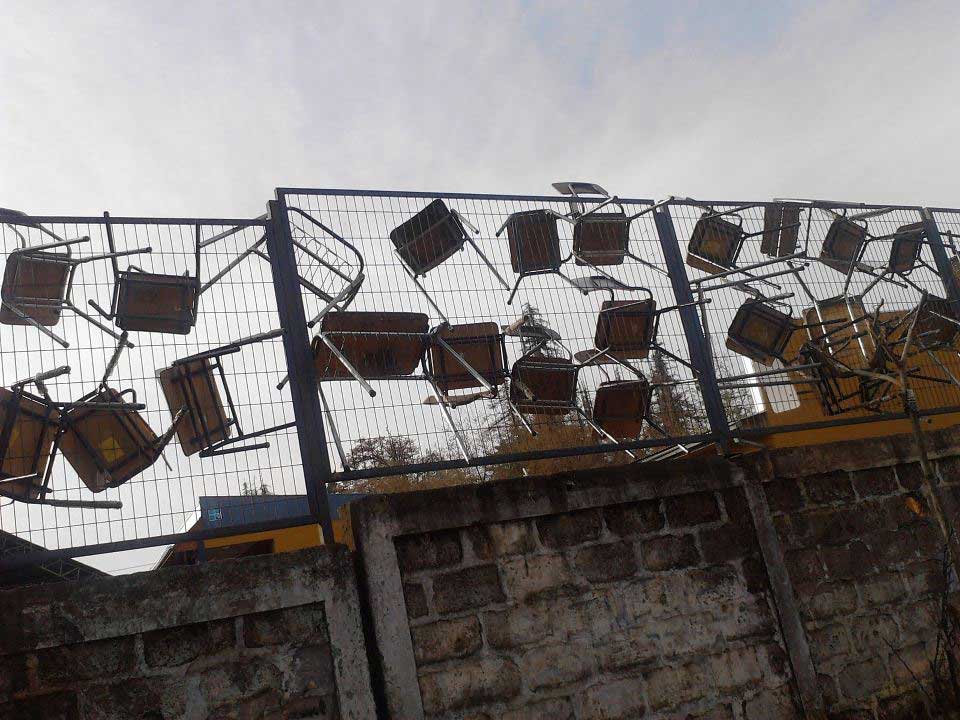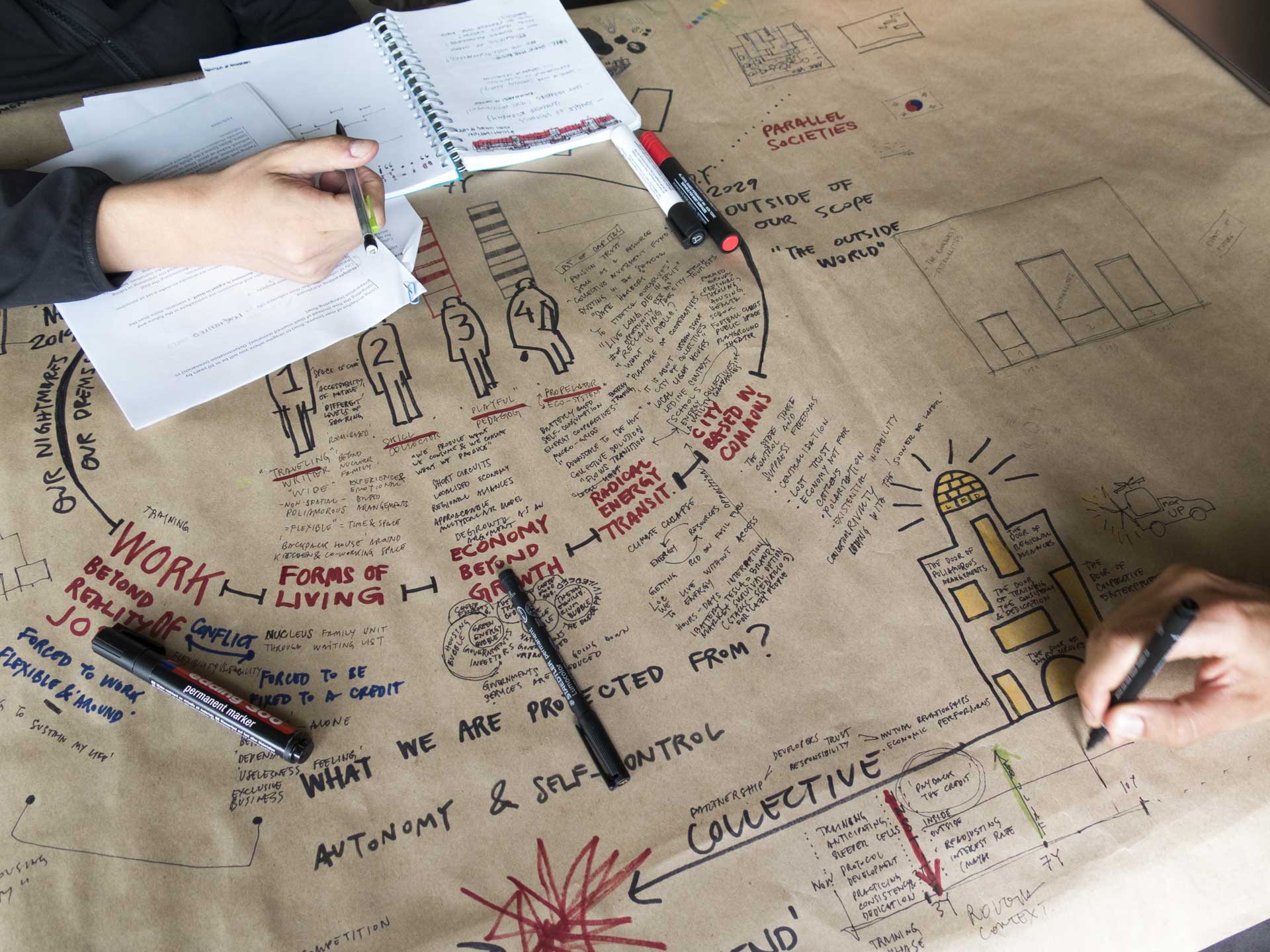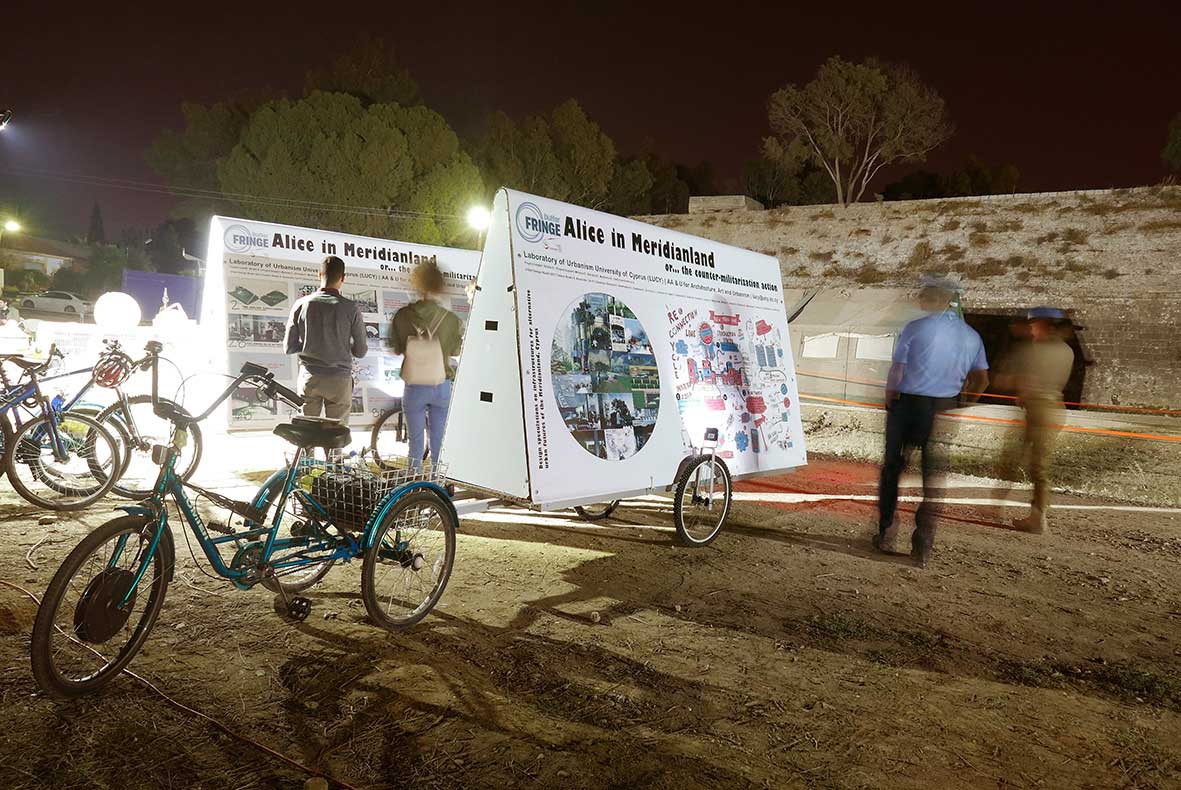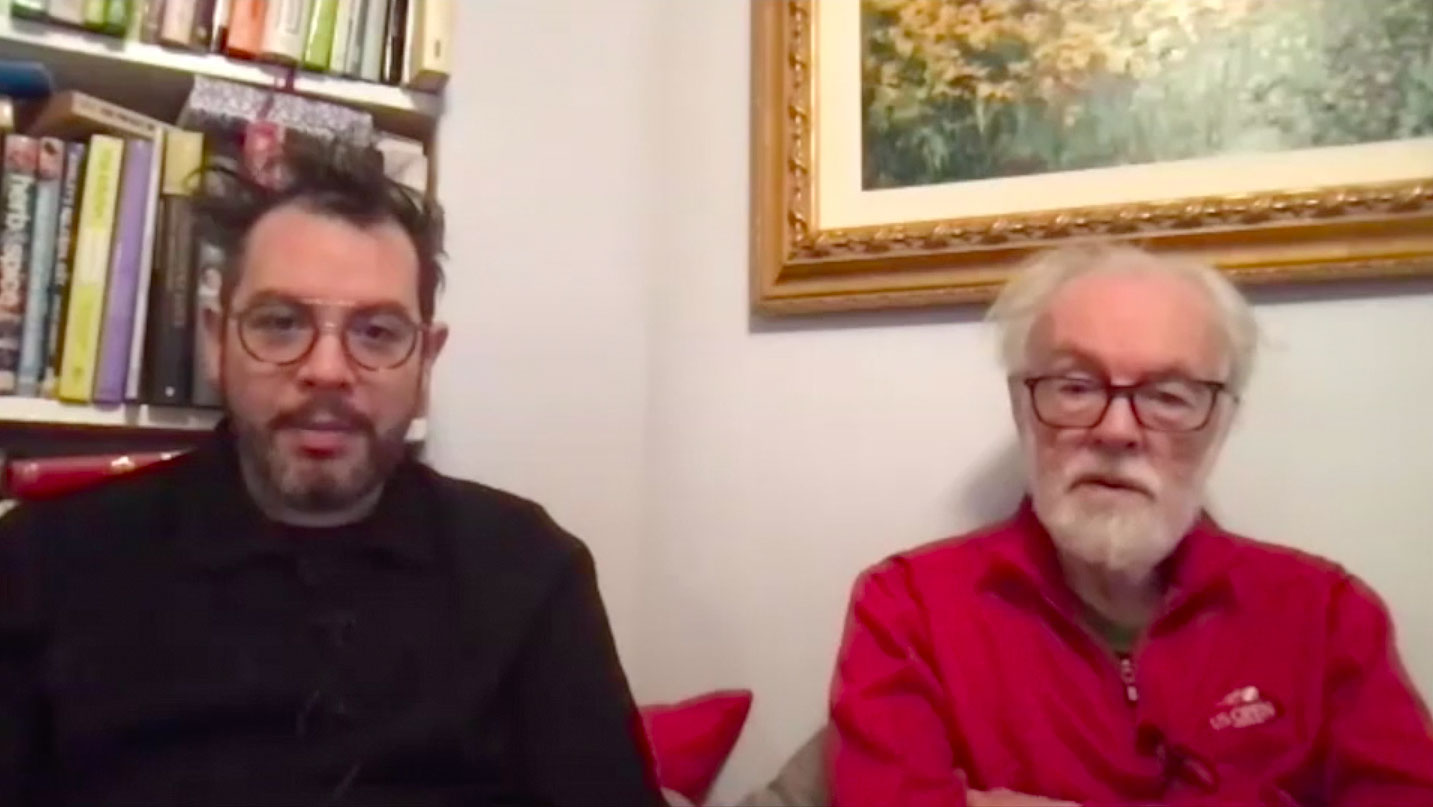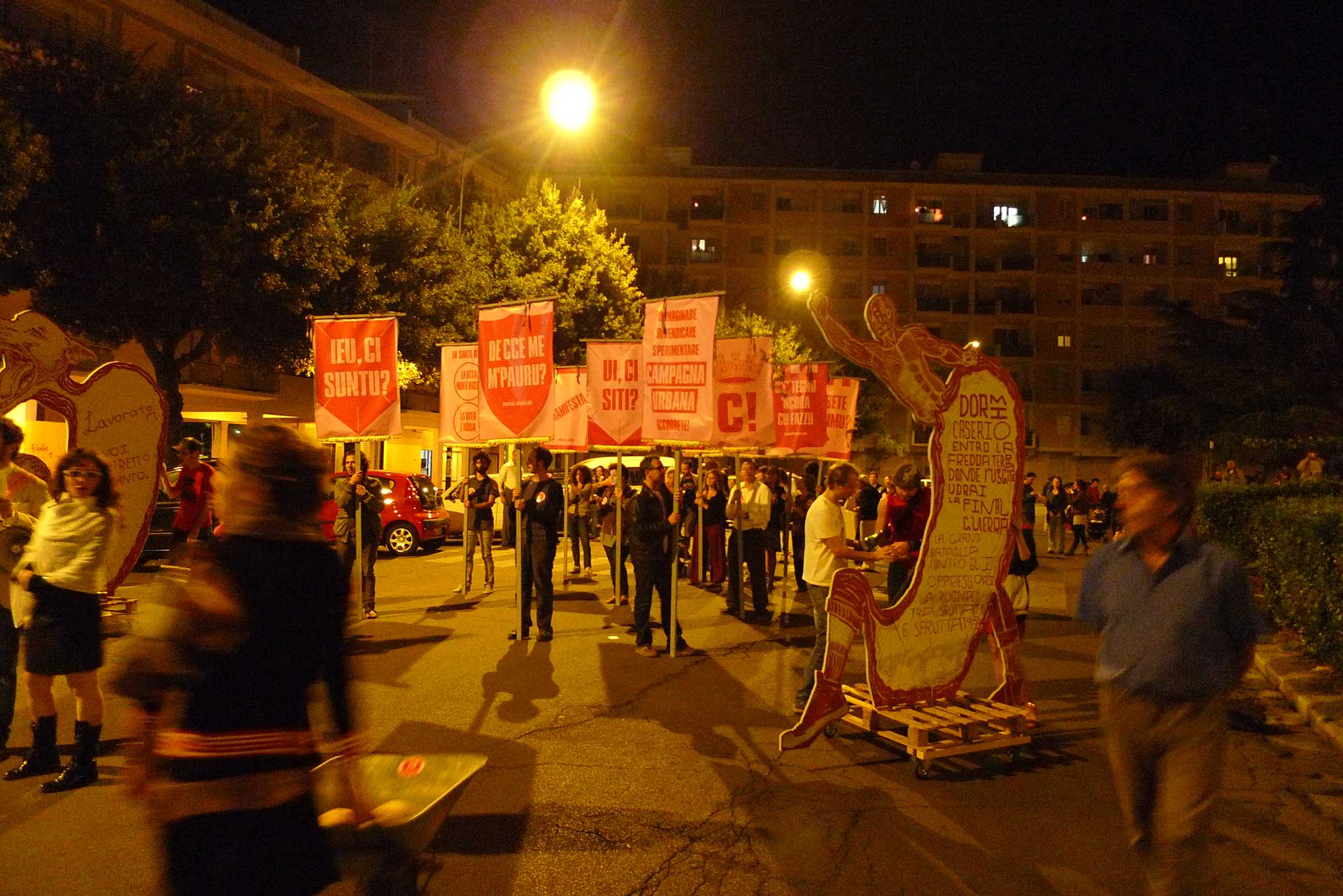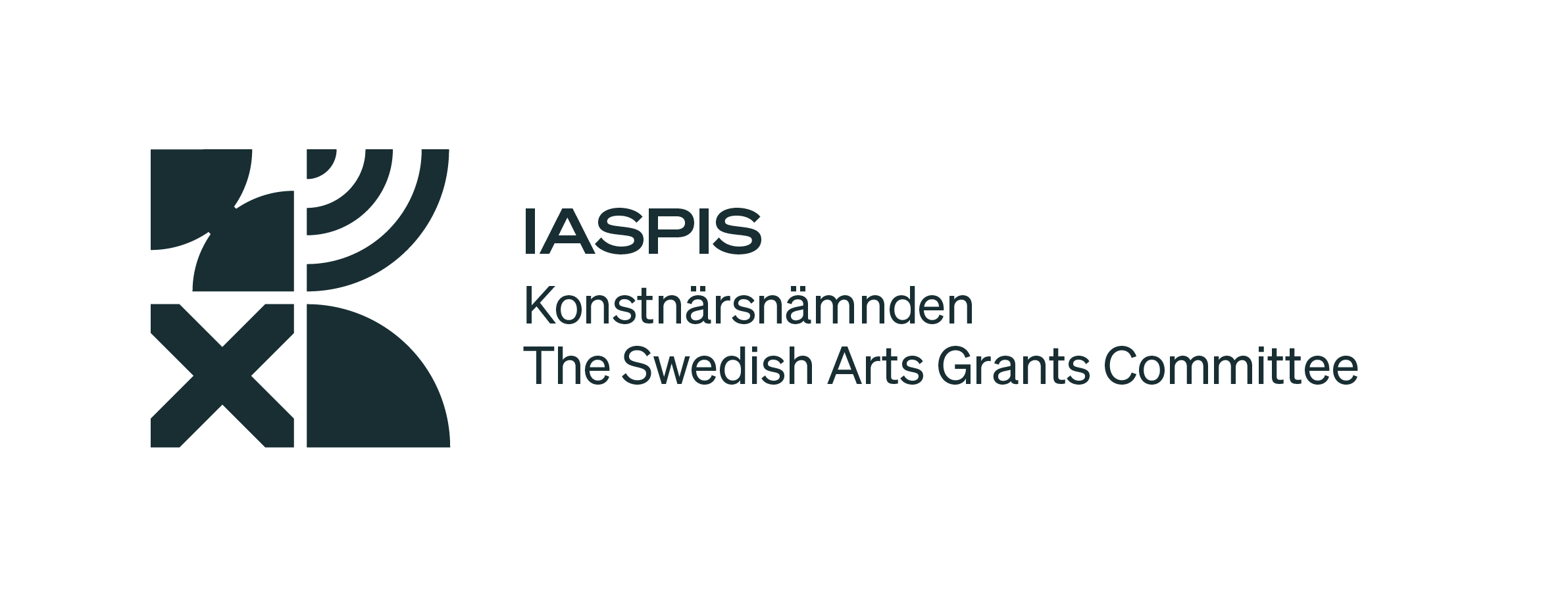Issue #3
Modalities
Pelin Tan and Magnus Ericson (Eds.), Silvia Franceschini, Michael Leung, Cibele Lucena, Joana Zatz Mussi, Socrates Stratis, Marc Neelen, Ana Džokić, Miguel Robles-Durán and David Harvey
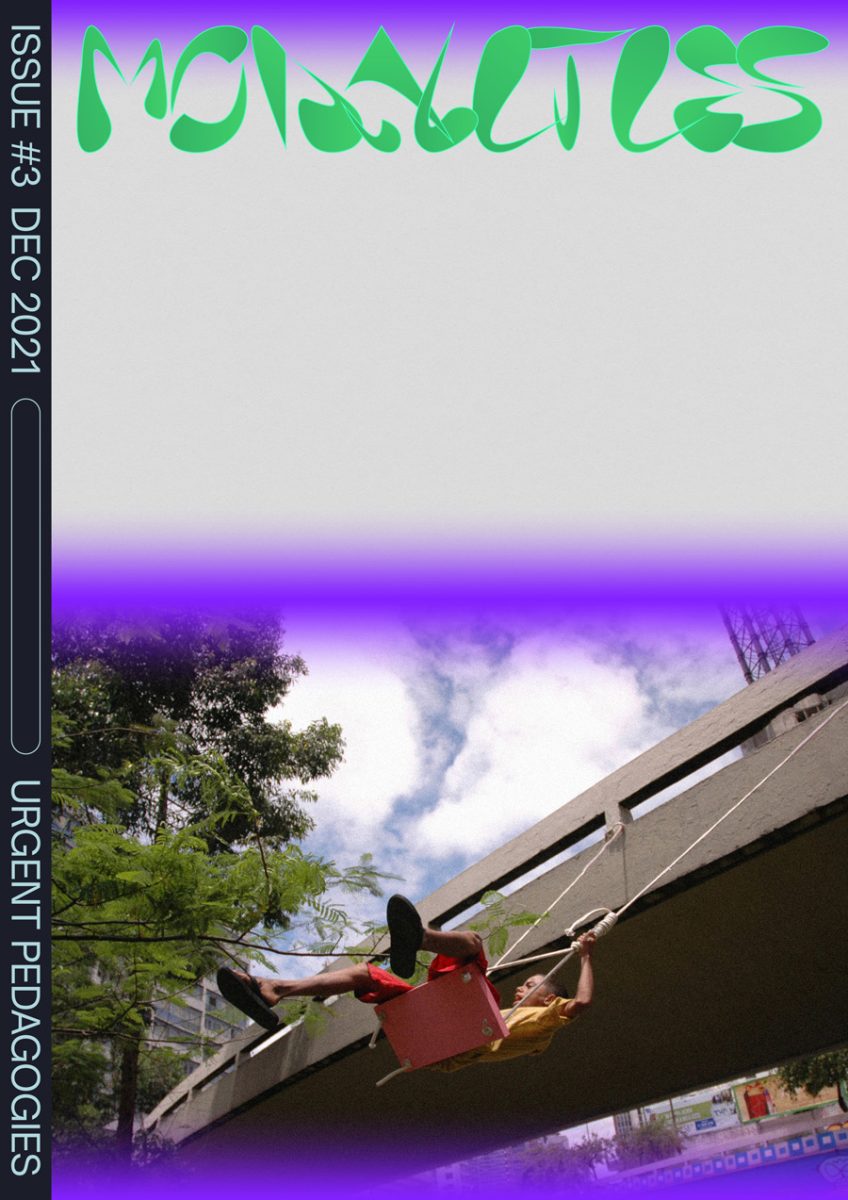
CATEGORY
Welcome to Issue #3. Here we share experiences from various practices within the context of territorialities; spatial, institutional and political constraints; and colonial histories.
The 3rd issue of Urgent Pedagogies is focusing on “modalities”, presenting and discussing examples of self-organized initiations, methodologies, and institutional models of action. Starting from the curatorial practice as a possible space for “epistemic disobedience” and speculating on fictional futures, it continues through self initiated pedagogic actions engaging local communities and inserting pedagogical devices in institutional contexts, to strategies of merging formal education with activism and looking at the possibilities of combining bottom up and a top down approaches.
Curator Silvia Franceschini provides a discussion on epistemic disobedience, through a literature review of decolonial thinkers, and connects with her curatorial research and experience. She focuses on the role of curatorial practices within institutional constraints, how the various ecologies of knowledge function, and what the practice of epistemic disobedience can irrupt. The article exemplifies curatorial practice and research as a pedagogical experience, bringing forward a critical space where modalities foster in institutional conditions. Designer and artist Michael Leung shares research and self-initiated actions in socially-engaged landscapes, as a pedagogical modality that reacts on the struggle of rural villages under the dominance of urbanization in Hong Kong. The methodology of socially-engaged art practices reveals the heritage of the rural everydaylife, and sustains the care practices inherent among elderly people and children. Artists, researchers and educators Cibele Lucena and Joana Zatz Mussi share the start and experiences of Grupo Contrafilé (Contrafilé Group), describing itself as the child of a post-civil-military dictatorship that took over Brazil from 1964 to 1985. Collaborating with different institutions, but maneuvering autonomously, Contrafilé Group works with the impact of the student movements and the struggle of reclaiming the micro political public spaces that are violently controlled as a tradition by the civil-military dictatorship. Generating pedagogical devices within institutional spaces and contexts, the group engages actively in decolonial pedagogical methodologies. Architect Socrates Stratis writes about collectively initiated action projects in a divided Cyprus, creating a liminal space between formal institutional education and activism. His practice (re)searches how alternative design methodologies are able to provide decolonial strategies through unlearning and collective learning in action. Modalities become here a maneuvering through and beyond borders on alternative territories and policies, by empowering resistance and co-operation. Using the curatorial as a method for speculating futures within institutional contexts, Marc Neelen and Ana Džokić – STEALTH.unlimited – employ a fictive approach that engages critically with the neoliberal urbanization of Eastern and Western Europe´s geographies. Speculating on fictional futures becomes a method of and for learning about commoning strategies. Urbanist Miguel Robles-Durán and economic geographer David Harvey reveal a pedagogical experience in Quito, Ecuador where between 2014 and 2017 a governmental commission resulted in a research center studying the Even Development Programme created by the government. They explain the experience of local dynamics, outcomes (and failures) of public unlearning, decolonial practices of the indigenous communities and the influence of local politics in the Latin American region.
Contents
Translating lifeworlds: curatorial practice and epistemic justice
Silvia Franceschini
Villager pedagogies and backpack organisers in Hong Kong
Michael Leung
A pedagogy for decolonizing life
Cibele Lucena and Joana Zatz Mussi
Diffractive spatial practices for urgent pedagogies
Socrates Stratis
Future fiction: an explorative method for self-learning
Marc Neelen and Ana Džokić, STEALTH.unlimited
The right to the territory
Miguel Robles-Durán and David Harvey
is a curator and researcher working across the fields of visual arts, design, and architecture. Until autumn 2021 she has been an Associate Curator at Z33 – House for Contemporary Art, Hasselt, Belgium. She has in different contexts been working with issues of pedagogy and spaces for learning and knowledge production and in her PhD thesis Toward an Ecology of Knowledges: Critical Pedagogy and Epistemic Disobedience in Contemporary Visual Art and Design Practices she explored and discussed in depth historical and contemporary theory and practice in this field. Curatorial projects include: Le Déracinement. On Diasporic Imaginations, Z33, Hasselt (2021); research program The Politics of Affinity. Experiments in Art, Education and the Social Sphere, Cittadellarte-Fondazione Pistoletto, Biella (2016–18); participation on the curatorial team of The School of Kyiv—Kyiv Biennial 2015; and the exhibition, symposium, and educational program Global Tools 1973–1975: Towards an Ecology of Design, SALT, Istanbul (2014). Silvia Franceschini is an editor of The Politics of Affinity. Experiments in Art, Education and the Social Sphere, Cittadellarte – Fondazione Pistoletto, 2018, and a co-author of Global Tools 1973–1975. When Education Coincides With Life, Nero Publishing, 2019.
is an artist/designer, researcher and visiting lecturer. He was born in London and moved to Hong Kong eleven years ago to complete a Masters in Design at The Hong Kong Polytechnic University. His projects range from collective agriculture projects such as The HK FARMers’ Almanac 2014-2015 to Pangkerchief, produced by Pang Jai fabric market in Sham Shui Po. Michael is a visiting lecturer at Hong Kong Baptist University where he teaches social practice (MA). He is currently doing his PhD at the School of Creative Media, City University of Hong Kong. His research focuses on Insurrectionary Agricultural Milieux, rhizomatic forms of agriculture that exist in local response to global conditions of biopolitics and neoliberalism. In 2014 Michael started writing fiction, self-publishing and reading them in public space. He contributes monthly to Fong Fo, an artist zine printed on the 21st of each month.
is an artist, teacher and researcher. Graduated in Geography at the University of São Paulo and Master in Clinical Psychology / Subjectivity Studies at PUC-SP (2017) with the dissertation “Beijo de línguas” (Tongue Kiss – when the deaf poet and the hearing poet meet) under the guidance of Prof. Dr. Suely Rolnik. Founding member of the art-politics-education collective Grupo Contrafilé and the performance study group Slam do Corpo, which since 2012 has been developing the 1st poetry battle in Brazil with deaf and hearing poets. Since 2000, she has worked training teachers and educators in cultural shows and exhibitions. Cibele develops and participates in projects as an illustrator, working mainly with drawing and embroidery. One of her main quests is to strengthen networks and radical methodologies for meeting, listening and creating.
works as a researcher, artist and educator. Graduated in Social Sciences and Journalism, she has been investigating the relationships between culture, body and urban space in different ways for more than twenty years. In 2012, she defended her Master’s dissertation Space as Work – Actions, Artistic Collectives and City at the Faculty of Architecture and Urbanism of the University of São Paulo. In 2017, a book with the same title was edited by Annablume with support from Fapesp. This same year, as a Fapesp fellow, Joana defended her doctoral thesis Arte em Fuga (Art in Escape), with focus on the points of convergence between art and social movements today. She founded the artistic collective Contrafilé Group. Since 2000 Joana works as a teacher and coordinator of cultural projects focused on contemporary art education for young people and teachers, from a political and critical perspective, in partnership with different institutions in São Paulo and Brazil.
is a Ph.D. architect, urbanist, and activist for the urban commons, Associate Professor, at the Department of Architecture, University of Cyprus. His research focuses on the political agencies of architecture and urban design. He studies the strategic value of urban design, as well as the social dimensions of architecture plus the ways they both transform into critical urban practices. Socrates oscillates between reflective practice and practice-based research, thanks to entanglements between teaching, practicing, curating, and writing. He enriches his research by operating in a highly contested territory, such as the Cypriot one, plus by having an active contribution to the becoming of young European urban design practices through his scientific position in EUROPAN Europe. He’s one of the main founders of the critical urban practice agency AA & U, Cyprus. Soctates’ curatorial and activist work involves the Cyprus participation in the 15th Venice Biennale of Architecture, as well as the “Hands-on Famagusta” project and he was the editor of the book “Guide to Common Urban Imaginaries in Contested Spaces”, jovis. 2016.
are architects working and living between Belgrade and Rotterdam. In 2000 they founded STEALTH.unlimited. Although initially trained as architects, for over 15 years their work is equally based in the context of contemporary art and culture. Through intensive collaboration with individuals, organisations and institutions, STEALTH connect urban research, visual arts, spatial interventions and cultural activism. Ana Džokić was trained as an architect at the University of Belgrade and completed a two-year postgraduate program at the Berlage Institute in Amsterdam. In May 2017 she received PhD at the Royal Institute of Art (KKH) in Stockholm, with a practice based research titled Upscaling, Training, Commoning. Marc Neelen received his degree in architecture at the Delft University of Technology in Delft, and from 2012-2017 held the position of a visiting professor at the University of Sheffield, School of Architecture.
is an urbanist with expertise in the design and analysis of complex urban systems and urban political-ecology. He is an associate professor of urbanism and director of the graduate urban programs at The New School / Parsons School of Design in New York City. He is a founding member of Urban Front, a transnational consultancy focused on helping progressive public and social sectors address critical urban issues including housing rights, environmental justice, public health, cultural action, sustainable infrastructure and political strategy. He is also co-founder of Cohabitation Strategies (CohStra), a globally recognized nonprofit cooperative for socio-spatial design and development based in New York City and Rotterdam. The work of Robles-Durán has been exhibited in numerous venues around the world, including The Museum of Modern Art (MoMA), MAK Museum Vienna, La Biennale di Venezia, the Istanbul Design Biennial, the Shenzhen Biennial, Chicago Architecture Biennial, the Rotterdam Biennial and the Lisbon Architecture Triennial.
is Distinguished Professor of Geography and Anthropology at the Graduate Center of The City University of New York. His work into the fields of anthropology, geography, marxists studies, political-economy, urban studies and cultural studies have made him one of the most influential thinkers alive. Over his lifetime David Harvey has been dedicated to the production and transfer of critical knowledge to academics and the general public alike, his online lectures on Marx’s Capital volume have been downloaded over half a million times with pending translations in over 129 languages, and his co-produced animation on the Crisis of Capitalism has been watched over 3 million times. He has published 26 books, many of them widely influential in the humanities, social sciences as well as the art and design fields. He is the recipient of twelve honorary doctorates. In 2019 he was granted the Leverhulme Gold Medal of the British Academy for Creative Contributions to the Social Sciences.
